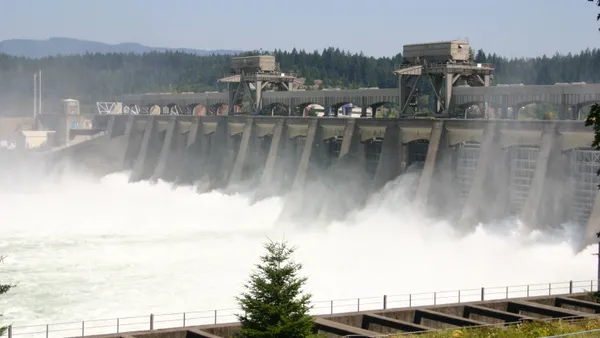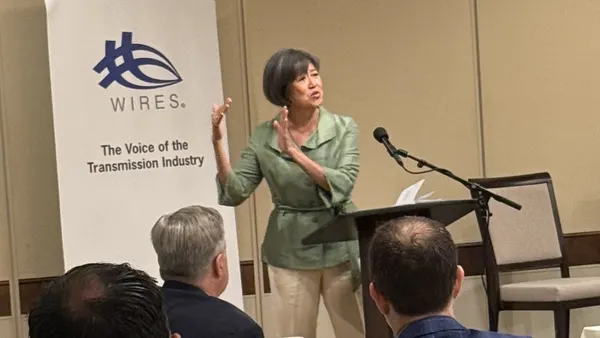Dive Brief:
- The Federal Energy Regulatory Commission on Thursday voted 2-1 to approve cost recovery for Exelon’s Mystic Generating Station in Boston, providing ratepayer-financed contracts for the plant through 2022.
- Exelon and grid operator ISO-NE argued the plant is essential for grid reliability because it financially supports the nearby Everett liquefied natural gas import facility, a critical source of fuel for the plant and region. Commissioner Richard Glick dissented, writing that FERC should not use its authority "to bail out an LNG import facility."
- FERC previously approved market changes for ISO-NE that allow Mystic to be treated as a price-taker in its next three capacity market auctions. FERC directed the grid operator to file a plan for permanent market changes to value fuel secure resources by June 2019.
Dive Insight:
FERC's order, issued late Thursday after the commission's monthly open meeting, illustrates the continued debate in New England and other regions about how to value plants with secure or onsite fuel supplies.
This spring, ISO-NE filed with FERC for a waiver to provide cost recovery for the 1,700 MW Mystic Generating Station in Boston, saying that it and an adjacent liquefied natural gas import facility are crucial to ensuring reliable power during winter, when natural gas transported by pipelines is diverted for home heating.
FERC rejected the request, saying it was too broad, but allowed the Mystic plant to apply for short-term cost recovery and directed the ISO to quickly design new market mechanisms to value fuel secure plants.
FERC on Thursday accepted the cost recovery proposal, providing ratepayer support for the plant for the next three annual capacity market auctions, which will allocate generation for the years 2022-2024.
In those auctions, the plant will be treated as a price-taker — not able to set market prices — under an order approved by FERC in early December.
Glick and fellow Democrat Commissioner Cheryl Lafleur joined together to approve the price-taker treatment in a 2-1 vote, but in both cases, Glick questioned FERC’s use of its authority to support an LNG facility.
"I believe that the Commission cannot and should not use its authority over wholesale sales of electricity to bail out an LNG import facility," he wrote in his Thursday dissent.
Clean energy advocates say the focus on generator fuel supplies can ignore potential contributions from other resources, like renewables and batteries, a point Glick picked up in his dissent.
"The jurisdictional puzzle in which the Commission now finds itself only reinforces the fundamental mistake that the Commission made in rushing to seize control of the debate over fuel security in New England and dictate a particular outcome," he wrote. "That outcome, '[i]ndividual, ad hoc contracts with particular resources whose retirement might, under the most conservative assumptions, create a fuel security concern[,]’ is no way to address a region’s long-term fuel security."












